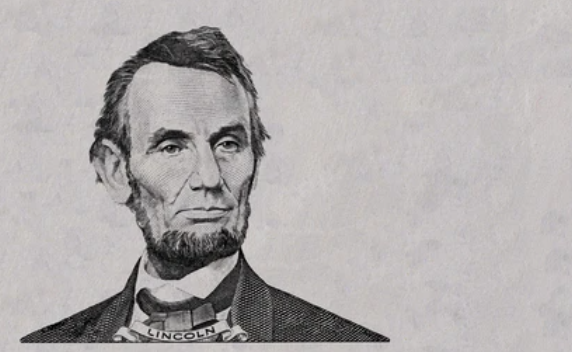Introduction: The Loss of a Leader During a Pivotal Moment in History
Abraham Lincoln, the 16th President of the United States, is often celebrated as one of the greatest leaders in American history. His leadership during the Civil War and his role in abolishing slavery with the Emancipation Proclamation were pivotal in shaping the nation’s future. However, his life was tragically cut short on April 14, 1865, when he was assassinated at Ford’s Theatre in Washington, D.C. This event not only shocked the nation but also left a profound impact on the course of American history.
Read Also : The Gold Rush (1848-1855): Transforming America’s Economy and Society
The Context: The End of the Civil War and the Nation’s Uncertain Future
The assassination of Abraham Lincoln occurred just days after the end of the Civil War, a conflict that had torn the nation apart for four years. The war had finally come to a close with General Robert E. Lee’s surrender at Appomattox Court House on April 9, 1865. As the nation began to grapple with the challenges of Reconstruction and healing, Lincoln’s death created a vacuum of leadership at a critical moment in the country’s history.
The Nation’s Relief and Hope After the Civil War
The conclusion of the Civil War brought a sense of relief and cautious optimism to the United States. After years of brutal conflict, the country was eager to move forward and rebuild. Lincoln’s vision for Reconstruction was one of reconciliation and unity, with a focus on healing the divisions between the North and the South. His leadership was seen as essential to guiding the nation through the difficult process of reunification and addressing the complex issues of emancipation and civil rights for newly freed African Americans.
The hope that the end of the war would bring about a new era of peace and prosperity was shared by many, but it was also accompanied by uncertainty. The challenges of rebuilding the South, integrating former Confederate states back into the Union, and ensuring the rights of former slaves were daunting tasks. Lincoln’s steady hand and moral clarity were seen as crucial to navigating these challenges and ensuring a just and lasting peace.
The Radicalization of Southern Sentiment
Despite the end of the war, not all Southerners were ready to accept defeat or the changes that would come with Reconstruction. In many parts of the South, resentment and anger toward the Union were still strong, and there was widespread resistance to the idea of granting equal rights to African Americans. This resistance was often fueled by radical elements who viewed Lincoln as a tyrant and a symbol of Northern oppression.
The assassination of Lincoln was, in many ways, a reflection of this deep-seated animosity. While the majority of Southerners did not support such an extreme act, there were those who saw Lincoln’s death as a means of revenge and a way to derail the Union’s plans for Reconstruction. The radicalization of Southern sentiment posed a significant threat to the fragile peace that had been achieved, and it would continue to influence the course of Reconstruction in the years that followed.
Lincoln’s Vision for Reconstruction
Abraham Lincoln’s approach to Reconstruction was characterized by a desire to bring the nation back together as quickly and peacefully as possible. He advocated for a lenient policy toward the former Confederate states, believing that harsh punishment would only lead to further division and resentment. Lincoln’s plan, known as the “Ten Percent Plan,” called for Southern states to be readmitted to the Union once 10% of their voters swore an oath of allegiance to the United States and accepted the end of slavery.
Lincoln also recognized the importance of addressing the rights and needs of newly freed African Americans. While his plans for full civil rights were still evolving at the time of his death, he had already begun to advocate for limited suffrage for African Americans, particularly for those who had served in the Union Army. Lincoln’s vision for Reconstruction was one of inclusivity and healing, aimed at creating a more just and united nation.
The Challenges of Reconstruction in a Divided Nation
The process of Reconstruction was fraught with challenges, as the nation struggled to come to terms with the consequences of the Civil War. The South was devastated by the conflict, with its economy in ruins, its infrastructure destroyed, and its social fabric deeply fractured. The task of rebuilding the region and reintegrating it into the Union was a monumental one, requiring a delicate balance of compassion, justice, and pragmatism.
One of the key challenges of Reconstruction was the question of how to reintegrate the former Confederate states into the Union while ensuring that the rights of newly freed African Americans were protected. Lincoln’s assassination left this critical task to his successor, Andrew Johnson, whose approach to Reconstruction would prove to be more lenient and less focused on civil rights than Lincoln’s vision.
The assassination also exacerbated the already deep divisions within the nation. While the North celebrated the Union’s victory, many in the South remained bitter and resentful, unwilling to accept the changes that Reconstruction would bring. The challenge of uniting a nation still deeply divided by war and ideology would prove to be one of the most difficult and contentious aspects of the post-war period.
The Role of Radical Republicans in Shaping Reconstruction
In the wake of Lincoln’s assassination, the Radical Republicans in Congress emerged as a powerful force in shaping the course of Reconstruction. These legislators, led by figures such as Thaddeus Stevens and Charles Sumner, advocated for a more aggressive approach to rebuilding the South and securing the rights of African Americans. They believed that the former Confederate states should be held accountable for their role in the Civil War and that meaningful reforms were necessary to ensure justice and equality.
The Radical Republicans pushed for the passage of the Reconstruction Acts of 1867, which imposed military rule on the South and required the former Confederate states to draft new constitutions guaranteeing civil rights for African Americans. They also played a key role in the passage of the 14th and 15th Amendments, which granted citizenship and voting rights to African Americans.
However, the Radicals’ approach to Reconstruction was met with fierce resistance from many Southerners, as well as from President Andrew Johnson, who opposed their policies. The resulting conflict between Congress and the President led to a bitter struggle over the direction of Reconstruction, ultimately culminating in Johnson’s impeachment. The Radicals’ influence on Reconstruction would have a lasting impact on the nation’s efforts to achieve justice and equality in the post-war period.
The Assassination: A Night That Changed History
On the evening of April 14, 1865, Abraham Lincoln attended a performance of the play Our American Cousin at Ford’s Theatre in Washington, D.C. What was supposed to be a night of relaxation and celebration quickly turned into a national tragedy when John Wilkes Booth, a Confederate sympathizer, entered Lincoln’s private box and shot him in the back of the head. The President was mortally wounded and died the following morning, plunging the nation into grief.
John Wilkes Booth: The Man Behind the Assassination
John Wilkes Booth was a well-known actor and a passionate supporter of the Confederacy. Born into a prominent theatrical family, Booth had achieved considerable fame as an actor, but his fervent belief in the Southern cause and his deep-seated hatred of Lincoln led him down a dark path. Booth had long harbored a desire to strike a blow against the Union, and with the South’s defeat, he became increasingly desperate to take action.
Booth’s initial plan was to kidnap Lincoln and hold him ransom in exchange for the release of Confederate prisoners. However, as the war drew to a close and the Confederacy’s hopes faded, Booth’s plans took a more sinister turn. He became convinced that by assassinating Lincoln, he could revive the Southern cause and prevent the Union from imposing its will on the South.
Booth recruited a group of co-conspirators to assist in his plot, including Lewis Powell, David Herold, and George Atzerodt. While Booth’s ultimate goal was to decapitate the Union government by killing Lincoln, Vice President Andrew Johnson, and Secretary of State William Seward, only Lincoln’s assassination was successful. Booth’s actions would make him one of the most infamous figures in American history.
The Sequence of Events at Ford’s Theatre
The events of April 14, 1865, unfolded with shocking speed. Booth entered Ford’s Theatre during the performance and made his way to Lincoln’s private box, where the President was seated with his wife, Mary Todd Lincoln, and their guests, Major Henry Rathbone and Clara Harris. Booth waited for a moment in the play that would elicit laughter from the audience, hoping the noise would cover the sound of the gunshot.
At approximately 10:15 p.m., Booth fired a single shot from a derringer pistol into the back of Lincoln’s head. Major Rathbone attempted to apprehend Booth, but he was slashed with a knife and severely wounded. Booth then leaped from the box onto the stage, breaking his leg in the process but managing to escape through the rear of the theatre.
The theatre erupted in chaos as the audience realized what had happened. Lincoln was immediately carried across the street to the Petersen House, where doctors worked to save his life. Despite their efforts, the wound was fatal, and Lincoln succumbed to his injuries at 7:22 a.m. on April 15, 1865. The nation was plunged into mourning as news of the assassination spread.
The Manhunt for John Wilkes Booth
Following the assassination, John Wilkes Booth fled Washington, D.C., heading south through Maryland and into Virginia. The federal government launched an extensive manhunt, deploying thousands of soldiers and law enforcement officers to track down Booth and his accomplices. The search for Booth became one of the largest manhunts in American history, with rewards offered for information leading to his capture.
Booth evaded capture for 12 days, despite suffering from a broken leg and the increasing pressure of the manhunt. He was eventually cornered in a tobacco barn on the Garrett farm near Port Royal, Virginia. Refusing to surrender, Booth was shot by Union soldiers, and the barn was set on fire. Booth was dragged from the burning building, and he died a few hours later from his wounds. His death marked the end of one of the most infamous chapters in American history.
The capture and death of John Wilkes Booth did little to ease the nation’s grief. The assassination of Abraham Lincoln was a profound loss for the country, and the circumstances surrounding Booth’s escape and eventual death only added to the sense of shock and tragedy. The nation was left to grapple with the consequences of Lincoln’s death and the uncertain future that lay ahead.
The Fate of the Co-Conspirators
In addition to Booth, several other individuals were involved in the conspiracy to assassinate Lincoln. Lewis Powell, David Herold, George Atzerodt, and Mary Surratt were all arrested and charged with conspiring to kill the President. Their trials were highly publicized and became a focal point for the nation’s grief and anger following Lincoln’s assassination.
Lewis Powell was assigned to assassinate Secretary of State William Seward, and on the same night as Lincoln’s assassination, he attacked Seward in his home, severely injuring him and several members of his household. David Herold assisted Booth in his escape and was with him when he was cornered by Union soldiers. George Atzerodt, who was supposed to kill Vice President Andrew Johnson, lost his nerve and fled without carrying out his part of the plan. Mary Surratt, who owned the boarding house where the conspirators met, was accused of helping to plan the assassination.
All four were found guilty and sentenced to death. On July 7, 1865, Powell, Herold, Atzerodt, and Surratt were hanged, marking the first time a woman was executed by the federal government. Their executions were seen as a necessary measure of justice, but they also sparked debates about the fairness of their trials and the extent of their involvement in the conspiracy.
The Legacy of Lincoln’s Assassination in American Memory
The assassination of Abraham Lincoln has left an indelible mark on American history and memory. It is often viewed as one of the greatest tragedies in the nation’s history, not only because of the loss of a beloved leader but also because of the timing of his death, just as the country was beginning the difficult process of healing from the Civil War.
Lincoln’s assassination has been the subject of countless books, films, and historical studies, and it continues to be a topic of fascination and debate. The event is often portrayed as a turning point in American history, a moment when the nation’s hopes for a peaceful and just Reconstruction were dealt a devastating blow. The image of Lincoln as a martyr for the cause of freedom and equality has become a central part of his legacy, shaping the way he is remembered and honored in American culture.
The site of Lincoln’s assassination, Ford’s Theatre, has been preserved as a national historic site, and the events of that fateful night are commemorated in museums, memorials, and public ceremonies across the country. The assassination of Abraham Lincoln remains a powerful symbol of the enduring struggles for justice, equality, and national unity in the United States.
The Impact of Lincoln’s Assassination on the Nation
The assassination of Abraham Lincoln had a profound impact on the United States, both in the immediate aftermath and in the years that followed. His death came at a time when the nation was beginning the difficult process of Reconstruction, and his absence left a significant void in the country’s leadership. The consequences of his assassination were felt across the political, social, and cultural landscape of the United States.
The Transition of Power: Andrew Johnson’s Presidency
In the wake of Lincoln’s death, Vice President Andrew Johnson was sworn in as the 17th President of the United States. Johnson, a Southern Democrat who had remained loyal to the Union during the Civil War, faced the daunting task of leading the nation through the early years of Reconstruction. However, Johnson’s approach to Reconstruction differed significantly from Lincoln’s, leading to significant political conflict and controversy.
Johnson favored a more lenient approach to the Southern states, advocating for their quick reintegration into the Union with minimal changes to their pre-war social and political structures. This stance put him at odds with the Radical Republicans in Congress, who sought to impose more stringent conditions on the South, including protections for the rights of newly freed African Americans.
The conflict between Johnson and Congress led to a bitter struggle over the direction of Reconstruction, ultimately resulting in Johnson’s impeachment in 1868. While he was acquitted by a single vote in the Senate, Johnson’s presidency was largely ineffective, and his failure to provide strong leadership during this critical period had lasting consequences for the nation.
The Impact on Reconstruction and Civil Rights
Lincoln’s assassination had a significant impact on the course of Reconstruction and the fight for civil rights in the United States. Without Lincoln’s leadership, the nation struggled to find a cohesive and effective approach to rebuilding the South and addressing the rights of newly freed African Americans. The leniency of Johnson’s policies allowed many former Confederates to regain power in the South, leading to the enactment of “Black Codes” that severely restricted the rights of African Americans.
The Radical Republicans in Congress responded by passing the Reconstruction Acts of 1867, which imposed military rule on the South and required the Southern states to ratify the 14th Amendment, granting citizenship and equal protection under the law to African Americans. However, the progress made during Reconstruction was met with fierce resistance from white Southerners, leading to the rise of violent organizations like the Ku Klux Klan and the eventual rollback of many Reconstruction-era reforms.
The struggle for civil rights would continue for decades, with the legacy of Lincoln’s assassination casting a long shadow over the nation’s efforts to achieve racial equality. The loss of Lincoln’s vision for a more inclusive and just society was deeply felt, and the consequences of his death shaped the course of American history for generations to come.
The National Mourning and the Legacy of Lincoln
The nation was plunged into mourning following Lincoln’s assassination. His funeral procession, which traveled from Washington, D.C., to his final resting place in Springfield, Illinois, was attended by hundreds of thousands of grieving citizens. The outpouring of grief and respect for Lincoln reflected the deep admiration and love that many Americans felt for him, as well as the profound sense of loss that accompanied his death.
Lincoln’s legacy as one of America’s greatest presidents was cemented in the years following his assassination. He became a symbol of national unity, emancipation, and the struggle for a more just society. Monuments, memorials, and tributes to Lincoln were erected across the country, and his speeches and writings became a source of inspiration for future generations.
The assassination of Abraham Lincoln also had a lasting impact on the nation’s collective memory and identity. His death, at a moment of great national significance, transformed him into a martyr for the cause of freedom and equality. Lincoln’s legacy continues to influence American politics, culture, and society, and his ideals remain a guiding force in the nation’s ongoing quest for justice and equality.
The Cultural and Political Consequences
Lincoln’s assassination had far-reaching cultural and political consequences. In the immediate aftermath of his death, the nation experienced a period of intense mourning and reflection. The assassination was widely seen as a national tragedy, and it had a unifying effect on the North, solidifying the resolve to complete the work of Reconstruction and honor Lincoln’s legacy.
Politically, the assassination led to a shift in power dynamics within the federal government. The Radical Republicans, who had been pushing for more aggressive measures to protect the rights of African Americans and punish the former Confederate states, gained greater influence in Congress. This shift resulted in the passage of significant legislation aimed at securing civil rights and restructuring the South, but it also led to increased tension and division within the country.
Culturally, Lincoln’s death became a symbol of the broader struggle for freedom and justice in America. His life and legacy were celebrated in literature, art, and public discourse, and his image became an enduring icon of American ideals. The cultural reverence for Lincoln helped to shape the nation’s identity in the post-war period, reinforcing the values of equality, democracy, and national unity.
The Role of the Media in Shaping Public Perception
The assassination of Abraham Lincoln occurred at a time when the media was becoming an increasingly powerful force in shaping public opinion. Newspapers played a crucial role in reporting the events surrounding Lincoln’s death, and their coverage helped to shape the nation’s response to the tragedy. The press portrayed Lincoln as a martyr for the cause of freedom, and this image became deeply ingrained in the public consciousness.
The widespread coverage of the assassination and the subsequent trial of the conspirators also highlighted the growing influence of the media in American society. Newspapers were able to reach a broad audience, and their reporting on the events of April 14, 1865, helped to create a shared national experience of grief and mourning. The media’s portrayal of Lincoln as a symbol of national unity and emancipation further solidified his place in American history.
The role of the media in shaping public perception of Lincoln’s assassination also had long-term implications for the relationship between the press and the government. The intense public interest in the assassination and the trial of the conspirators demonstrated the power of the media to influence public opinion and hold government officials accountable. This dynamic would continue to evolve in the years following Lincoln’s death, shaping the role of the media in American democracy.
Conclusion: The Enduring Impact of Lincoln’s Assassination
The assassination of Abraham Lincoln on April 14, 1865, was a pivotal moment in American history. It marked the tragic end of a leader who had guided the nation through its darkest hour and laid the groundwork for a new era of freedom and equality. Lincoln’s death left a profound void in the nation’s leadership at a critical time, and the consequences of his assassination were felt for generations.
The impact of Lincoln’s assassination extended beyond the immediate aftermath of his death. It influenced the course of Reconstruction, the struggle for civil rights, and the nation’s political and cultural development. Lincoln’s legacy as a champion of liberty and justice continues to resonate in American society, and his life and death remain central to the nation’s collective memory.
FAQ
Who assassinated Abraham Lincoln? Abraham Lincoln was assassinated by John Wilkes Booth, a well-known actor and Confederate sympathizer, on April 14, 1865, at Ford’s Theatre in Washington, D.C.
Why was Abraham Lincoln assassinated? John Wilkes Booth, a supporter of the Confederacy, assassinated Lincoln because he believed that killing the President would revive the Southern cause and disrupt the Union’s efforts to reconstruct the South after the Civil War.
What were the consequences of Lincoln’s assassination? Lincoln’s assassination had significant consequences, including a shift in the direction of Reconstruction, increased political conflict, and a long-lasting impact on civil rights. His death also left a profound void in leadership at a critical time in American history.
How did Lincoln’s assassination affect Reconstruction? Lincoln’s assassination led to a more contentious and difficult period of Reconstruction. His successor, Andrew Johnson, took a more lenient approach to the South, which led to conflicts with Congress and a slower path to securing civil rights for African Americans.
What is Abraham Lincoln’s legacy? Abraham Lincoln’s legacy is one of leadership, emancipation, and national unity. He is remembered as one of America’s greatest presidents, and his efforts to preserve the Union and abolish slavery have had a lasting impact on the nation.







1 comment